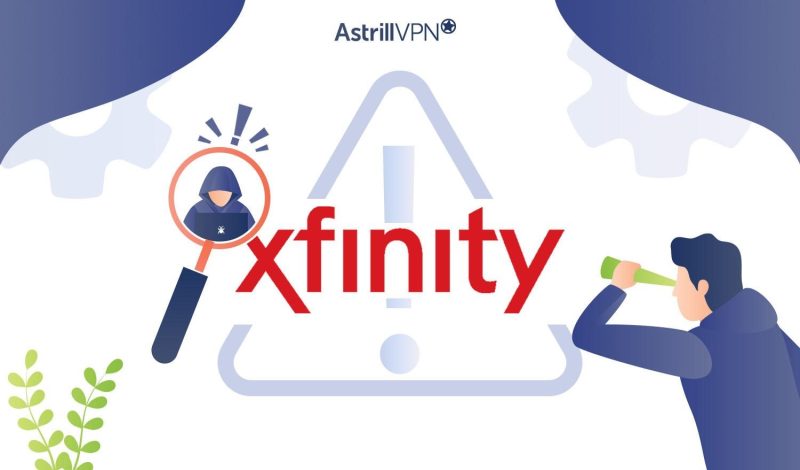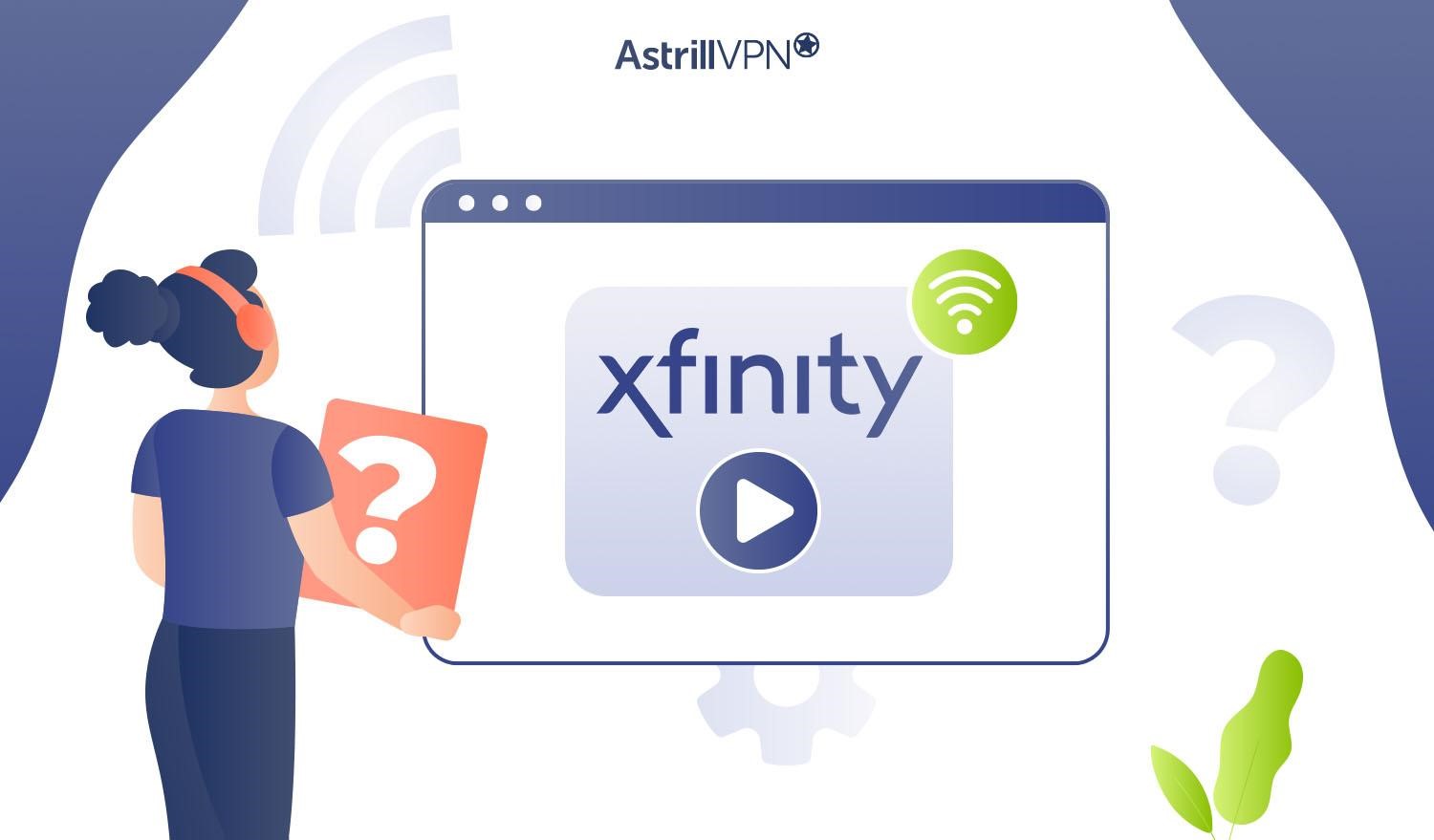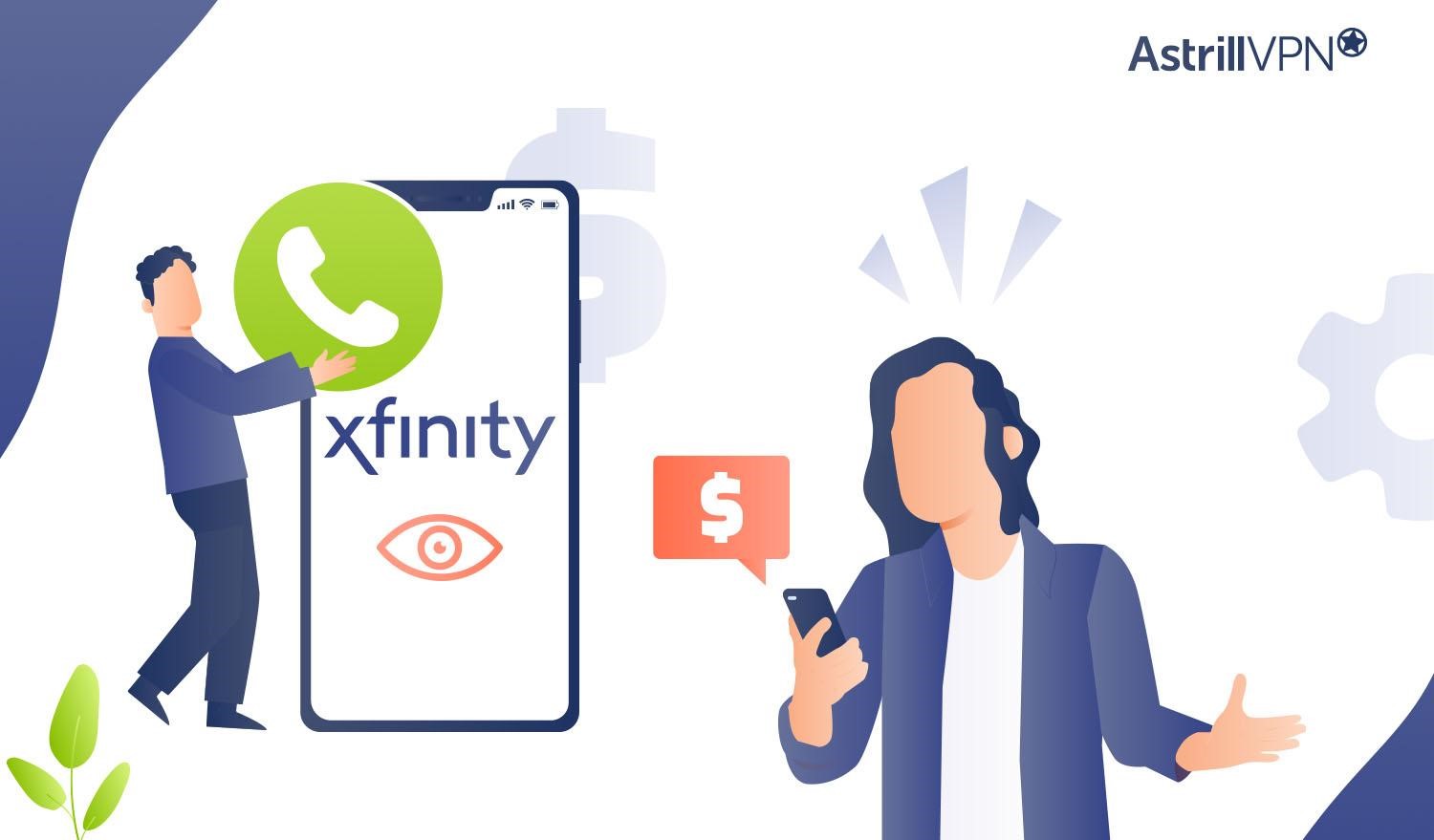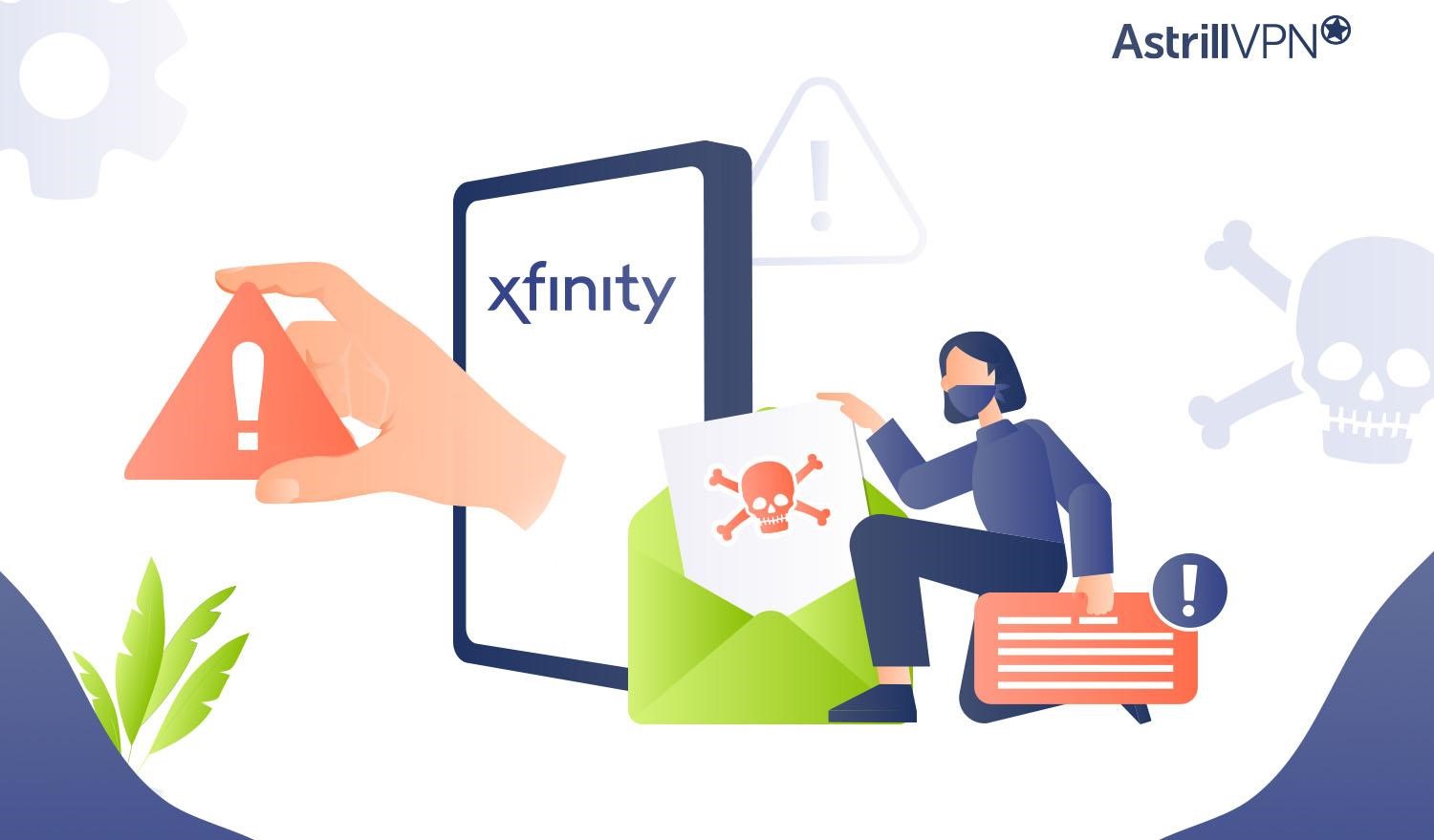Xfinity Scams Alert: How to Recognize and Avoid Common Tricks?

Suppose you get a call from someone claiming to be from Xfinity, and you start thinking about Xfinity will call me? Saying there’s an issue with your internet service or cable package that needs to be addressed immediately.
They insist you provide personal information like your account number, social security number, or credit card details to fix the problem and avoid interruption of your services. This is a scam, and Xfinity would never ask for sensitive data over the phone.
Unfortunately, scammers frequently impersonate companies like Xfinity to trick people into handing over information they can use for identity theft or fraud. Learn to spot the red flags so you don’t become a victim.
Table of Contents
ToggleWhat is Xfinity?

Xfinity is Comcast’s home internet, phone, and TV service brand. As one of the largest cable providers in the U.S., Xfinity is a common target for scammers trying to steal your personal information or money. That is why it’s mostly termed as a Comcast scam.
Watch out for these sneaky tricks:
- Unsolicited calls
Be wary of unsolicited calls claiming there’s an issue with your Xfinity account or equipment like your cable box or router. Legit Xfinity reps will not ask for sensitive data like your social security number, bank account info, or WiFi password over the phone.
- Do not click suspicious links
Delete texts or Xfinity phishing emails asking you to click suspicious links or download attachments to fix account issues or get refunds. Xfinity will not contact you this way about problems. These are phishing attempts to install malware or steal logins.
- Never pay upfront fee
Never pay upfront fees for tech support or prize winnings. Real Xfinity services and promotions don’t require prepayment or fees to claim a reward.
- Double check sender information
Double-check the sender details on communications claiming to be from Xfinity. Scammers spoof the company name and branding to appear authentic. Look closely for slight differences that expose the fraud.
Staying vigilant and learning to spot these common schemes can help you avoid becoming another victim of Xfinity fraud.
Watch Out for “Xfinity” Calls Demanding Payment

Watch out for “Xfinity” calls demanding payment. Scammers often pose as Xfinity employees to trick people into paying fake bills or providing personal information.
- If you get a call from someone claiming to be from Xfinity demanding immediate payment or account information, hang up. Xfinity will not call and threaten to cut off your service or demand payment over the phone.
- Be suspicious of callers who ask for prepaid cards, wire transfers, or cash. Legitimate companies don’t ask for payment in those forms.
- Don’t provide any personal information like your account number, password, or social security number to unsolicited callers. Xfinity already has that information and will not ask for it over the phone.
- If you have questions about your Xfinity account or think you may owe money, call the official Xfinity support line or log in to your account directly to check. Don’t rely on information from random calls, no matter how convincing the caller seems.
Staying vigilant and verifying requests can help ensure you don’t fall victim to sneaky Xfinity scams. Knowledge and caution are your best defenses.
Red Flags: What Do Legitimate Xfinity Communications Look Like?
- Xfinity will not ask for sensitive information like your social security number, credit card number, or account password in an unsolicited phone call, email, or text. Be very suspicious if contacted out of the blue and asked for this data.
- Legitimate communications from Xfinity will have an official logo and contact information. They will also address you by name and account number.
- Watch out for poor grammar, spelling errors, or an urgent tone demanding immediate action. Xfinity will refrain from threatening to cut off your service or demand payment over the phone.
- Real Xfinity alerts will have steps you can take to verify the communication is authentic, like checking your online account or calling an official customer service line.
- Be wary of links and attachments in unsolicited messages. Xfinity will not send you links to update billing info, claim a refund, or access your account. Delete these kinds of messages immediately.
- If contacted and unsure if it’s Xfinity or not, hang up the phone or wait to reply to the message. Then, call Xfinity directly or log into your account to check on anything that seems off.
How to Report a Suspected Xfinity Scam?
If you receive a suspicious call, text, or email claiming to be from Xfinity, report it immediately. Reporting scams helps Xfinity take action against fraudsters and prevents others from becoming victims.
To report an Xfinity scam:
- Call 1-800-XFINITY (1-800-934-6489) and speak to a customer service representative. Provide details about the scam contact, like the phone number that called you or a copy of the Xfinity scam email.
- Submit a report on Xfinity.com/scams. Fill out the online form with specifics about your experience. Xfinity reviews all scam reports and works with authorities to shut down fraudulent operations.
- Alert the FCC or FTC by filing a complaint on fcc.gov/complaints or ftc.gov/complaint. Government agencies use public reports to identify trends, warn other consumers, and prosecute scammers when possible.
- Warn friends and family, especially older relatives or those less tech-savvy. Spreading awareness about current fraud techniques prevents additional victims and strengthens community support systems. Staying vigilant together is key.
- Contact local law enforcement if you feel threatened or provided sensitive data like account access or funds to a scammer. They may be able to take further action against the perpetrators.
Beware of Suspicious Xfinity Email Scams and Text Messages

Be on alert for Comcast scams emails and smishing (phishing via text) claiming to be from Xfinity. These messages often appear legitimate at first glance, using the Xfinity logo and mentioning your account or services. However, their goal is to trick you into providing sensitive information or downloading malware.
Some telltale signs these messages are scams:
- They ask for personal information like your password, social security number or credit card number. Xfinity will never ask for sensitive data via email or text.
- There are spelling and grammar mistakes. Legitimate companies carefully proofread all communications.
- The message urges you to act quickly, or your account will be closed. Xfinity will not threaten to close your account out of the blue.
- Links or attachments ask you to install software or log into a website. Never click links or download attachments from unsolicited messages.
- The sender’s address does not match Xfinity’s official email or the message comes from an unknown number. Xfinity’s domain is @xfinity.com.
If you receive a suspicious message claiming to be from Xfinity, do not respond or click any links. Forward the email to spam@uce.gov and report the text to 7726 (SPAM). Then, delete the message.
Cramming and Slamming Scams
Watch out for cramming and slamming scams targeting Xfinity customers. Crammers will add extra services or equipment to your account without permission, hoping you won’t notice the charges. Be alert for unfamiliar charges on your bill and report them immediately.
Slammers switch your service to another provider illegally. They may call claiming your Xfinity promo deal expired or services will be cut off soon if you wait to switch providers immediately. Don’t fall for high-pressure tactics. Xfinity will notify you before making any changes to your account or service.
To avoid becoming a victim:
- Never provide personal info or account access to unsolicited callers.
- Be wary of deals that sound too good to be true.
- Don’t click links or download attachments from unsolicited messages.
- Monitor bills and statements regularly for signs of fraud.
- Report suspicious contact or charges to Xfinity immediately.
Making International Calls Unintentionally
One scam to watch out for is unintentionally making international calls that result in huge charges. Scammers may call claiming an issue with your Xfinity service or device and ask you to dial an international number to fix it.
Never call unknown international numbers.
Legitimate Xfinity employees will not ask you to call international numbers. Hang up immediately if asked to dial an unfamiliar international number. Scammers can use caller ID spoofing to make it appear they’re calling from a legitimate company.
Some scams start with an automated call claiming an issue with your Xfinity account or internet service. The recording provides an international number to call back for help. Other times, scammers directly call customers while impersonating Xfinity employees. They insist you call an international hotline immediately to address a make-believe service or billing issue.
No matter the method, the goal is the same trick you into calling expensive international numbers that can result in $20-$50 per minute or more charges. Xfinity will never ask you to call any international number for support. If you receive a suspicious call, just hang up. Legitimate Xfinity employees will verify account information before discussing any issues with your services.
Call Forwarding Scam
Have you received calls claiming that your Xfinity phone or internet service will be disconnected if you don’t provide personal information or payment over the phone? Hang up immediately—it’s a scam. Xfinity will never ask for sensitive data or payment over the phone.
These crafty criminals often use caller ID spoofing to make it appear the call is from Xfinity. They may threaten to cut off your service or offer a refund to trick you into providing credit card numbers, social security numbers, or account passwords.
Never give personal information or make payments over the phone to unsolicited callers. Legitimate Xfinity reps will never ask for sensitive data or payment over the phone. If you receive one of these Xfinity scam calls, simply hang up. You can then report the scam to Xfinity’s customer security team and the FTC to help prevent others from becoming victims.
Caller ID Spoofing
Be wary of calls from numbers that appear to be from Xfinity but are not actually from an official Xfinity phone number. Scammers use caller ID spoofing to mask their real number and make it seem like the call is coming from a legitimate company. These imposters may claim an issue with your account or service requires immediate payment or account information.
Xfinity will not ask for sensitive data like your social security number, credit card number, or account password over the phone. Do not provide any personal information or make payments to unverified callers. Instead, hang up and contact Xfinity directly using the official support number on your bill or the company website to inquire about your account status or report the scam call.
How to Report Phone Fraud?
If you receive a suspicious call claiming to be from Xfinity and you don’t know why is Xfinity calling me then report it to help combat phone fraud.
Reporting scam phone calls helps Xfinity take action against fraudsters and can help prevent others from becoming victims. Here are the steps to report a phone scam:
To report a phone scam to Xfinity, call 1-800-XFINITY or visit xfinity.com/fraudalert within 48 hours of receiving the call. Be prepared to provide details like:
- The phone number that appeared on your caller ID
- The time and date of the call
- Details about the call such as what the caller said, any personal information requested, etc.
Xfinity takes phone fraud very seriously and will investigate reported scam calls. They may even contact law enforcement to help catch the perpetrators. Your report can help identify patterns of fraud and new scam techniques so Xfinity can warn other customers.
Protecting Yourself From Scams: Best Practices for Xfinity Customers
To avoid becoming a victim of scams targeting Xfinity customers, be vigilant and take proactive steps to protect yourself.
- Only provide personal information or make payments through official Xfinity channels like the My Account app, website, or in-person at an Xfinity store. Scammers may pose as Xfinity employees to steal money or data by asking for wire transfers, prepaid cards, or account access.
- Enable two-factor authentication on your Xfinity account for an extra layer of security. This helps prevent unauthorized access even if your password is compromised.
- Be skeptical of links, attachments, or urgent requests in unsolicited communications. Phishing emails and malware are common tricks used to infect devices or steal logins.
How can AstrillVPN help you avoid scams?
AstrillVPN can help shield you from many common scams. Here’s how:
Malicious Websites
Scam websites are designed to steal personal information or install malware. AstrillVPN encrypts your internet connection and hides your real IP address, masking your online identity and location. This makes it much harder for scammers to track or target you. Enable the VPN whenever shopping, banking, or entering sensitive data online.
Public Wi-Fi Risks
Public networks are prime hunting grounds for scammers. They can see all unencrypted internet activity and steal logins, passwords, account numbers, and more. AstrillVPN secures your connection and tunnels all online traffic through an encrypted virtual private network. Your real IP address, location, and internet activity stay hidden from prying eyes. Use it whenever connecting to public Wi-Fi hotspots.
Email Phishing Protection
Scammers cast wide nets with phishing emails, hoping victims will click malicious links or download infected attachments. AstrillVPN helps in preventing suspicious emails. Enable the VPN, then check any suspicious emails. The VPN hides your real IP address so if you do click a bad link, scammers can’t track you. The VPN also masks your location, so scammers can’t target you based on geography. Staying vigilant and using AstrillVPN provides an added layer of protection against phishing scams.
FAQs
Common questions about Xfinity scams include:
Unfortunately, scammers often obtain customer phone numbers and use spoofing technology to make calls and texts appear to come from Xfinity. They do not contact customers to demand immediate payment or threaten to cut off service.
Xfinity will never ask for sensitive data like your account number, social security number or credit card info over the phone or text. We will also never demand immediate payment or threaten to disconnect your service. Any communication asking for this type of sensitive information or threatening action against your account should be considered fraudulent.
They will not call you. Simply hang up the phone or delete the text message. You can then report the scam to Xfinity so we are aware of the fraudulent activity and can take measures to block those phone numbers. The fastest way to report Xfinity mobile scams is through our mobile app, website, or by calling 1-800-XFINITY.
Conclusion
So there you have it, the most common scams and frauds targeting Xfinity customers to watch out for. Stay vigilant and trust your instincts. If something sounds too good to be true, it probably is. Never provide personal information or click suspicious links in unsolicited communications. And remember, Xfinity will never ask for payment via prepaid cash cards or wire transfers. By following these tips, you’ll keep the scammers at bay and your account information secure.


No comments were posted yet